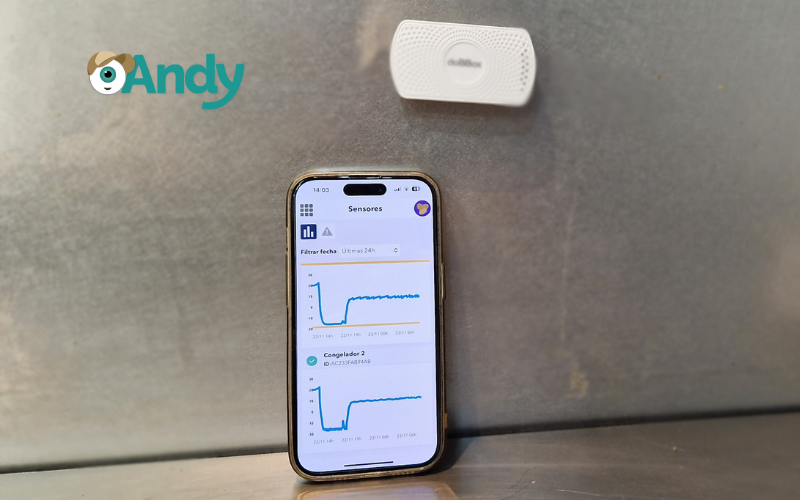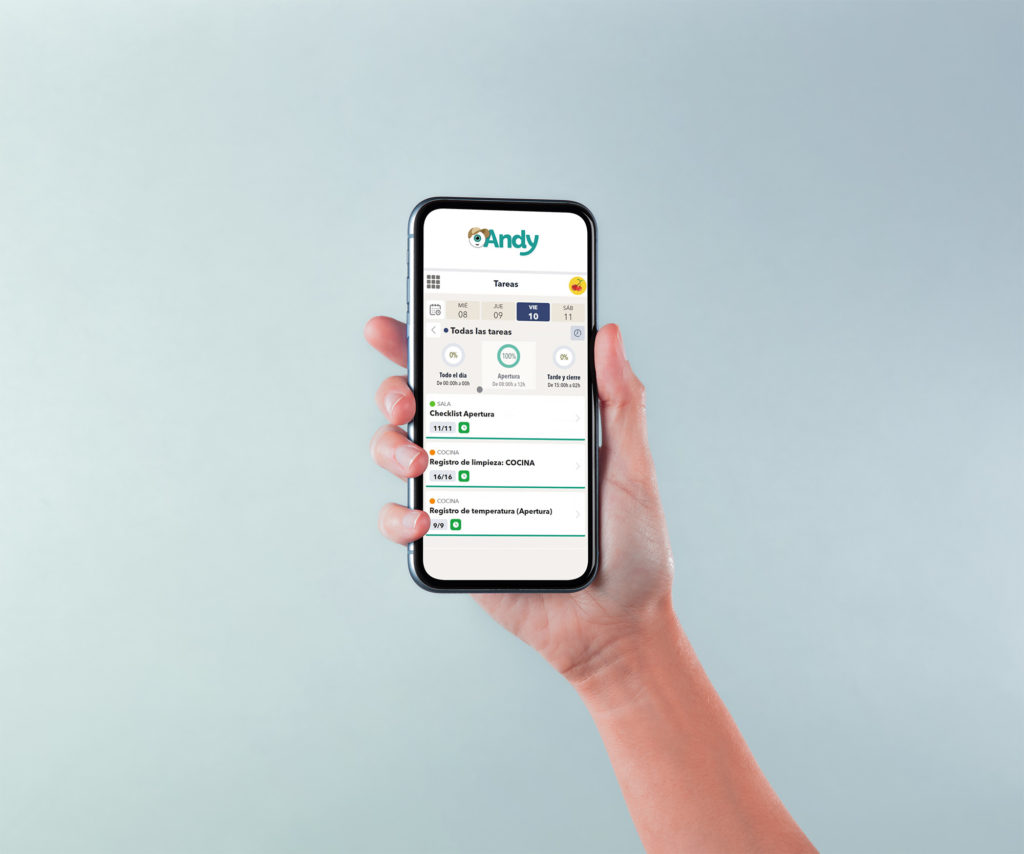Boost Efficiency and Safety with Digital HACCP for Hotel Kitchens

In today’s fiercely competitive hospitality industry, food safety is not just a regulatory requirement – it’s a fundamental component of maintaining guest trust and ensuring repeat business. A single foodborne illness incident can have dire consequences, not only for guest health but also for a hotel’s reputation and financial health. In fact, foodborne illnesses in the United States are estimated to cost around $17.6 billion annually, factoring in medical expenses, lost productivity, and the devastating impact on brand reputation.
Guests today expect an experience that is both memorable and safe, from the comfort of their room to the meals served in the dining area. Even one food safety lapse can drive away potential guests and harm future bookings. As such, implementing robust food safety practices like HACCP (Hazard Analysis Critical Control Point) is critical to ensuring high standards.
However, traditional paper-based HACCP systems are often cumbersome, prone to human error, and difficult to maintain consistently.
This is where digital HACCP for hotel kitchens steps in, offering a streamlined, data-driven solution.
By embracing digital technology, hotels can not only improve compliance but also increase efficiency, helping to deliver the safe, high-quality dining experiences that guests expect.
Understanding Digital HACCP for Hotel Kitchens
What is HACCP?
HACCP, or Hazard Analysis and Critical Control Points, is a systematic approach to food safety management that aims to prevent biological, chemical, and physical hazards throughout the food production process.
Originating in the 1960s for NASA’s space missions, HACCP has since become the gold standard in food safety protocols worldwide.
It focuses on identifying potential risks in food production, determining Critical Control Points (CCPs) where hazards can be controlled or eliminated, and setting up processes for monitoring, verification, and record-keeping.
The main goal is to ensure that food is safe to consume, preventing incidents like foodborne illnesses and contamination that could harm guests and damage a hotel’s reputation.
The Benefits of Digital HACCP for Hotel Kitchens
Digital HACCP systems represent a significant evolution from traditional paper-based methods.
By leveraging cloud-based software and digital tools, hotels can achieve greater efficiency and accuracy in their food safety processes.
Here are a few key advantages:
- Streamlined Processes: Digital HACCP automates many manual tasks, such as data entry, temperature logging, and reporting. This reduces the time and labor needed for daily checks and allows staff to focus on higher-value activities like customer service.
- Enhanced Compliance: Compliance with food safety regulations is easier with digital systems that automatically update and store records. This makes it simpler to demonstrate adherence to local and international standards during inspections, avoiding potential fines and ensuring a consistent approach to food safety.
- Improved Traceability: Digital systems provide real-time tracking of food safety parameters, from receiving ingredients to serving meals. In the event of an incident, such as a recall, hotels can quickly trace back the issue to its source, minimizing risk and addressing problems more efficiently.
- Data-Driven Insights: Digital HACCP tools offer analytics that can identify trends, such as frequent temperature deviations in a specific storage area. This allows for proactive adjustments and improvements, enhancing the overall safety and quality of the food served to guests.
Key Components of Digital HACCP for Hotel Kitchens Software
Risk Assessment
Effective digital HACCP begins with a thorough risk assessment to identify potential hazards in the food production process.
In a hotel kitchen, these hazards might include cross-contamination between raw and cooked foods, improper storage temperatures, or allergens present in dishes.
Digital systems often feature built-in risk assessment tools that allow hotels to categorise hazards by severity and likelihood, making it easier to prioritise where to focus safety efforts.
These assessments help tailor the HACCP plan to the specific needs of each kitchen, ensuring a customised approach to safety that aligns with the menu and operating procedures.
Critical Control Points (CCPs)
CCPs are stages in the food preparation process where a control can be applied to prevent or eliminate a food safety hazard.
Examples include cooking to a specific internal temperature to kill pathogens or maintaining refrigeration at safe temperatures to prevent bacterial growth. Identifying CCPs is crucial because it allows the hotel kitchen to focus on the steps that are most critical to food safety.
A digital HACCP system for hotel kitchens can help automate the monitoring of CCPs using sensors and alerts, ensuring that deviations are caught early. This ensures that corrective measures can be taken before a risk reaches the consumer.
Monitoring and Record-Keeping
Accurate monitoring and record-keeping are foundational to HACCP compliance.
Digital tools simplify this by automatically recording data such as temperature readings, pH levels, and time stamps for each stage of food preparation.

For instance, wireless sensors can track cooler and freezer temperatures in real-time, with data logged directly into the digital system.
This not only ensures a higher degree of accuracy compared to manual entries but also provides a central database that can be easily accessed during audits or inspections.
Digital records also enable easier trend analysis, helping hotel kitchens identify recurring issues and address them proactively.
Corrective Actions
When a deviation from the established safety parameters occurs, it is critical to have a plan for corrective actions.
Digital HACCP systems for hotel kitchens streamline this process by automating the documentation of incidents and prompting staff with step-by-step procedures to resolve issues.
For example, if a refrigeration unit exceeds its temperature threshold, the system can alert the kitchen staff immediately and guide them through corrective actions, such as moving food items to an alternative cooling unit and discarding any potentially compromised products. This minimizes the risk of unsafe food reaching guests and ensures that all deviations are properly addressed and documented, fostering a culture of accountability and continuous improvement.
Implementing Digital HACCP in Your Hotel Kitchen
Eliminating Barriers to Digitisation
Transitioning from a traditional, paper-based HACCP system to a digital one can seem daunting, especially for hotel kitchens that are accustomed to manual processes.
However, addressing common barriers can smooth the transition:
- Cost Considerations: One of the primary barriers to digitization is the initial investment. While digital HACCP systems may require upfront costs for software and possibly hardware like sensors, these costs are often offset by savings from reduced labor hours, minimized food waste, and fewer compliance issues. Additionally, many digital HACCP providers offer scalable pricing models that can be tailored to the size of the hotel kitchen, making it more accessible for establishments of varying sizes.
- Change Management: Resistance to change is common when introducing new technology. To overcome this, it is crucial to involve staff in the process from the outset, explaining the benefits of digitization and how it will make their work easier. Demonstrating the system’s user-friendly interface and how it simplifies daily tasks can help build acceptance and enthusiasm.
- Technical Challenges: Some hotel kitchens may worry about the technical complexity of digital HACCP systems, especially if they lack IT expertise. To address this, choose a system with intuitive design, robust customer support, and comprehensive training materials. Many modern systems are cloud-based and require minimal IT infrastructure, reducing the need for specialized technical knowledge within the hotel.
You can find out more about Eliminating Barriers to Implementing HACCP Digital Software for Hotel Kitchens here.

Choosing the Right Digital HACCP for software kitchens
Selecting the best digital HACCP software for your hotel kitchen involves understanding your unique operational needs and finding a solution that aligns with those requirements.
 Key considerations include:
Key considerations include:
- Customisability: Look for a system that allows customisation to fit the specific processes and menu items of your hotel.
For instance, the ability to adjust CCPs (Critical Control Points) based on different types of cuisine or specific kitchen workflows can make a significant difference in maintaining food safety. - Ease of Use: The software should be intuitive and easy for staff to navigate.
A complicated interface can slow down daily operations and lead to errors in data entry.
Opt for systems that provide a clean user interface – like Andy 😎- with clear prompts and automated data recording, such as temperature logs directly from sensors. - Compliance Features: Choose a digital HACCP system that is designed to meet local and international food safety regulations. This will ensure that your kitchen remains compliant with the latest guidelines, and it can simplify the audit process by keeping digital records readily accessible for review.
Training Staff
Training is a critical component of successfully implementing a digital HACCP system. Without proper training, even the most advanced software can become a source of frustration and inefficiency.
Here’s how to ensure effective staff training:
- Hands-On Training Sessions: Conduct interactive training sessions where staff can practice using the system in real-world scenarios. This approach helps them become familiar with the software’s functions, such as logging temperature data or recording corrective actions, and ensures they are comfortable using the system during their shifts.
- Ongoing Support and Refreshers: Even after the initial training, it’s important to provide ongoing support. This might include refresher courses, quick reference guides, and easy access to customer support. These resources help address any questions or challenges that arise as staff become more accustomed to the digital system.
- Focusing on the ‘Why’: Emphasise the reasons behind using digital HACCP. When staff understand how the system contributes to food safety, reduces their workload, and improves the guest experience, they are more likely to adopt it enthusiastically. Highlighting how digital HACCP reduces time spent on manual tasks like paperwork can make the transition smoother.
- Designating Digital Champions: Identify team members who are tech-savvy and designate them as “digital champions.” These individuals can act as internal experts, providing support to colleagues and reinforcing the importance of consistent use of the digital HACCP system.
7 benefits of implementing digital HACCP for hotel kitchens
1. Enhanced Accuracy and Reliability
- Digital HACCP systems minimise human error by automating data collection and logging. For example, sensors can track refrigeration temperatures and upload the data directly to the cloud, eliminating the potential mistakes associated with manual entry.
- Automated systems ensure that critical information such as temperature logs, corrective actions, and verification records are accurate, timely, and free from discrepancies, leading to more reliable food safety processes.
2. Improved Compliance with Regulations
- Digital systems make it easier to comply with local, national, and international food safety standards, such as those from the FDA or the European Food Safety Authority (EFSA). The digital HACCP software can be programmed to meet specific regulatory requirements and automatically keep records in a format suitable for inspections.
- During audits, having a digital HACCP system simplifies the process of demonstrating compliance. Records are well-organised and easily accessible, reducing the time and stress associated with inspections.
.
3. Real-Time Monitoring and Quick Response
- With digital HACCP, hotel kitchens benefit from real-time monitoring of critical control points. This enables staff to respond immediately if something goes wrong, such as a refrigerator exceeding its safe temperature range.
- Automated alerts notify staff of deviations from set parameters, allowing them to take corrective actions right away, thus preventing food safety incidents before they escalate.
.
4. Cost Savings Through Reduced Food Waste
- Digital HACCP helps minimise food waste by ensuring that food storage and handling are optimal. By monitoring temperatures and humidity levels in real-time, digital systems can help avoid spoilage.
- Additionally, by identifying trends like frequent deviations or equipment failures, hotel kitchens can address underlying issues before they result in significant product los . This leads to better inventory management and cost savings over time.
5. Streamlined Staff Training and Management
- Training staff on digital HACCP systems is typically more efficient than manual processes. The software allows you to include training modules and guides for quicker onboarding of new employees.
- Digital HACCP for hotel kitchens also standardises procedures, ensuring that every team member follows the same protocols for monitoring, recording, and implementing corrective actions, which leads to a more consistent approach to food safety.
6. Data-Driven Insights and Continuous Improvement
- Digital HACCP systems offer advanced analytics and reporting capabilities. They can generate insights into recurring issues, such as which critical control points are most frequently compromised or which equipment needs maintenance.
- These insights allow hotel managers to make informed decisions about process improvements, staff training needs, or equipment upgrades, fostering a culture of continuous improvement in food safety practices.
7. Better Guest Satisfaction and Trust
- Implementing a digital HACCP system helps hotels assure guests of the highest standards of food safety. When guests trust that food is prepared safely, they are more likely to enjoy their dining experience, leave positive reviews, and return for future stays.
- In the competitive hospitality industry, such confidence can be a key differentiator, building a reputation for high standards and boosting bookings.
These benefits underscore how digital HACCP for hotel kitchens can elevate their operational standards, making them safer, more efficient, and ultimately more appealing to guests.


